All the expensive education in the world can’t compete with a genuine love for learning. That – and some solid reading comprehension and vocabulary skills – is what SHARP Literacy hopes to instill in the more than 5,000 first-through-fifth grade Milwaukee students who are currently enrolled in the program.
But now they’re more than good readers – they are also artists with their very own exhibition.
Begun in 1996, SHARP is a free in-school literacy program geared toward at-risk students in over 30 Milwaukee Public Schools. The organization utilizes visual arts to aid in the learning process, aiming to enhance vocabulary and reading skills through writing challenges and field trips. SHARP students even research, write and provide artwork for the organization’s “We Love to Learn” book series.
The latest We Love to Learn book, entitled, “A Busy Bee: The Story of Bella the Honey Bee,” landed the students’ artwork in the Milwaukee Art Museum. Students from 13 schools joined forces to create 500 images depicting scenes from the book, which were then appliqued to four quilts now on display at the Milwaukee Art Museum.
Participating schools were Brown Street Academy, Dr. George Washington Carver, BEAM, Ralph H. Metcalfe Elementary, Atlas Preparatory Academy, Dr. Martin Luther King , Jr., Escuela Vieau, Forest Home Avenue, Victory School for the Gifted and Talented, Dr. Benjamin Carson Academy of Science, Ralph Waldo Emerson, LaCausa Charter School and Westside Academy.
“The students we serve at at-risk, low-income students,” said Lynda Kohler, Executive Director of SHARP. ” It gives them an opportunity they normally would not have … these are kids that just don’t have opportunities even to go to the Art Museum.”
The quilt idea came about from SHARP’s policy of teaching through visual arts. It’s a process that has been effective with Litza Janowski’s second-graders at Blessed Sacrament School for 16 years.
“It’s incorporating things we’re already teaching,” said Janowski, who is the school’s SHARP liaison and has been involved in the program since its beginning stage.
“It really is living and breathing what we’re already doing in our classrooms, so it gives us resources. As my school demographics have changed to a more Latino population, we’re building vocabulary. Many of them are ESL (English as second-language) students. Using a picture of something helps them find a concrete. If we’re talking about a thunderstorm or a drought or a hurricane, some of these things they can experience, but not all of it. So when you show a piece of art they’re able to talk and make connection that they then can write about.”
The first grade curriculum for SHARP students centers around pollination and the life cycle of growing things. Reading the about Bella the Honey Bee, internalizing the story and interpreting it visually helped to solidify vocabulary words like “metamorphosis” in the students’ minds.
“One of the things SHARP does is they teach the concepts and vocabulary and reinforce it through activities, but they always try to bring that hands-on art back to it,” Janowski says.
“(The process) gathered some visual ideas and drawings that were relating to the idea of the importance of honey bees and bee pollinators, the four seasons of the year and the life cycle of growing things,” said Kohler.
The students were assisted in creating the quilt by artist Francisco Mora and professional quilter Terri Sankovitz. The unveiling at MAM on May 23 was a particularly special event for the students.
“We had five of our schools participate at the museum for the unveiling,” said Kohler. “You should have seen them – just the smiles, and pointing, and ‘Oh i helped with this’ – it was amazing. They feel so proud.”
Pride in one’s accomplishment and education is another component of the SHARP program. For many students, the book they receive from the SHARP program is the first they have ever owned.
“I’ve had students who were hesitant writers really get into the writing challenge at the end (of the year) because they are going to be published,” said Janowski.
“All their writings are put into a bound book. They see their name, they’re published – ‘I’m an author!’ It’s the buy-in for future years. These are goods you can buy in Barnes and Noble. They see and say oh we helped write that book. They have that ownership.”
Hopefully, a similar connection will be made with the Milwaukee Art Museums – and for the rest of their lives, the students can remember when their very own quilts were on display there.
“The real life experiences, again – when I was in school I was lucky. We were able to go to field trips to art museums and other things,” said Janowski. “But for some of these children they don’t. We have such a wealth here in the city they’ve never seen. This program makes them connect to what our great city has to offer.”

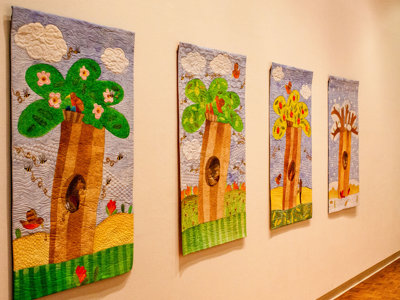
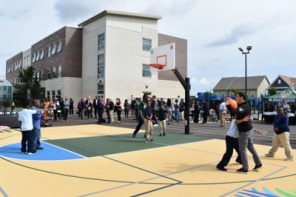 i evaluate to yes even if there's no image
i evaluate to yes even if there's no image  i evaluate to yes even if there's no image
i evaluate to yes even if there's no image 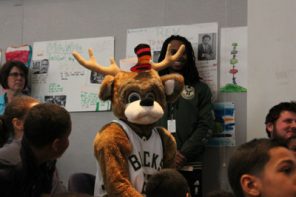 i evaluate to yes even if there's no image
i evaluate to yes even if there's no image 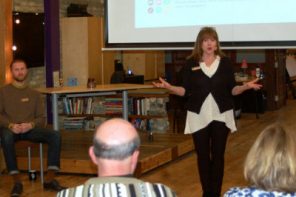 i evaluate to yes even if there's no image
i evaluate to yes even if there's no image 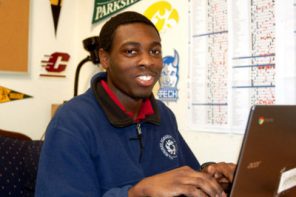 i evaluate to yes even if there's no image
i evaluate to yes even if there's no image 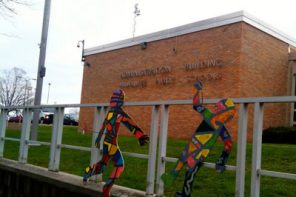 i evaluate to yes even if there's no image
i evaluate to yes even if there's no image 